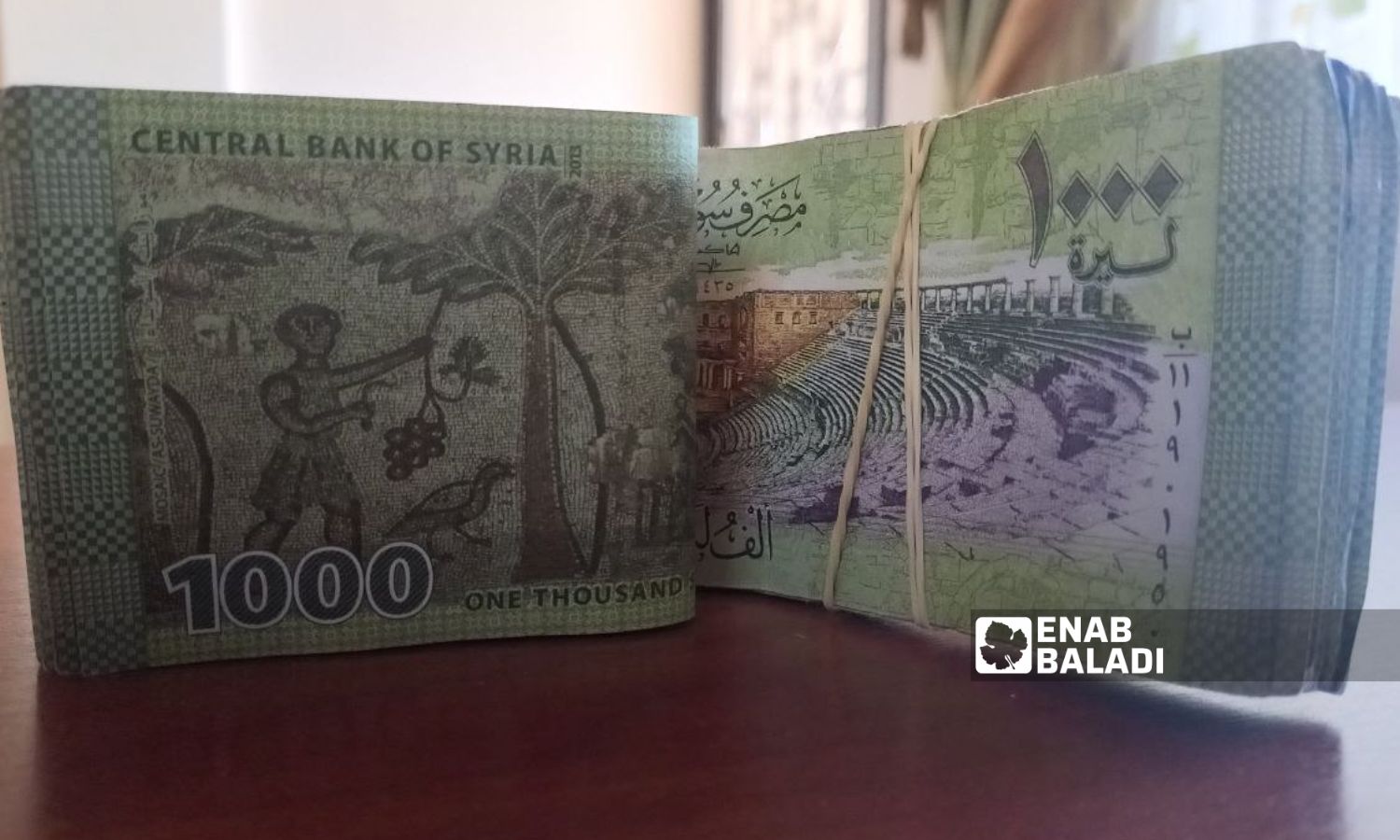



Homs – Orwah al-Mundhir
“Near the Gardenia roundabout on one of the avenues of al-Ghouta Street in Homs, people begin to gather and wait for an unknown person carrying numbered bags to give everyone their money inside a black bag.”
This scene is repeated daily in the central Syrian city of receiving remittances through the black market offices in Homs governorate, with the same details, but some changes occur in the places of delivery and the persons responsible for it, according to their security conditions.
With the urgent need for money transfers for the people of Homs, where Ghassan, 28, lives in a vortex waiting to receive his money coming from Europe, transfer services have become a gateway to exploiting people’s needs, according to what he told Enab Baladi, as the prices of transfers have increased since the first days of the holy month of Ramadan.
There are two types of money transfers in the regime-held areas. The first is through exchange companies licensed by the government, and the second is through black market networks that are based in opposition-controlled areas and Turkey and employ offices and agents working for them in regime-held areas to conduct receiving and delivery work, but without actual headquarters.
Ghassan, a resident of the Inshaat neighborhood in Homs, told Enab Baladi that he used to receive money transfers from abroad through transfer networks, but they have recently become a source of exploitation, especially since the transfer fees have increased from 4 to 7% of the amount’s value since the beginning of Ramadan.
This increase in the remittance market came in varying proportions, given the multiplicity of specialists working in these offices, and the increase was recorded at a higher rate in remittances in foreign currencies, while the conversion rate remained the same for recipients in Syrian pounds.
Ahmed, who works in an illegal remittance office in Homs governorate, told Enab Baladi that the month of Ramadan is considered a “season” for transfer offices, and the prices of clothes also rise during the holiday seasons, and the high demand for remittances constitutes a crisis for workers in the field, given the lack of adequate liquidity.
Ahmed delivers money to clients on a regular basis in the same manner described by Ghassan, and both of them requested that his full name be anonymous for security reasons.
In view of the danger that workers in this sector are exposed to from security prosecution and criminalization, Ahmed considered it his natural right to raise the prices of his services during certain seasons.
Transfer networks on the black market, despite the high transfer fees, are still popular at the expense of transfer companies linked to the regime, even after the latter raised currency exchange rates until they touched the real price.
Although the fees for money transfers have doubled in the black market recently, many people continue to prefer receiving their money through it, Ahmed told Enab Baladi.
Homs-based Hayyan, who receives money transfers periodically from his relatives outside Syria, told Enab Baladi that the preference for the black market is due to the fact that receiving any large sum through licensed companies may expose the owner to security accountability, in addition to the fact that licensed companies only deliver amounts in Syrian pounds, so the customer sees himself losing part of his money.
The young man pointed out that the high transfer fees did not reduce the difference in the exchange rate between the exchange companies’ bulletin and the real rate adopted by the companies, and therefore large losses may result for the recipient if he goes to the licensed companies.
The Central Bank of Syria (CBS) recently amended its policy of determining the exchange rate of remittances and money exchange in the US dollar, in line with the exchange rate against the pound on the black market.
The dollar (purchase price), according to the Central Bank, recorded 7,200 Syrian pounds during the past week, and the price of the euro exceeded 7,800 pounds.
($1=7475 SYP) according to the S-P Today website that covers the trading rate of the Syrian pound to the dollar.
if you think the article contain wrong information or you have additional details Send Correction